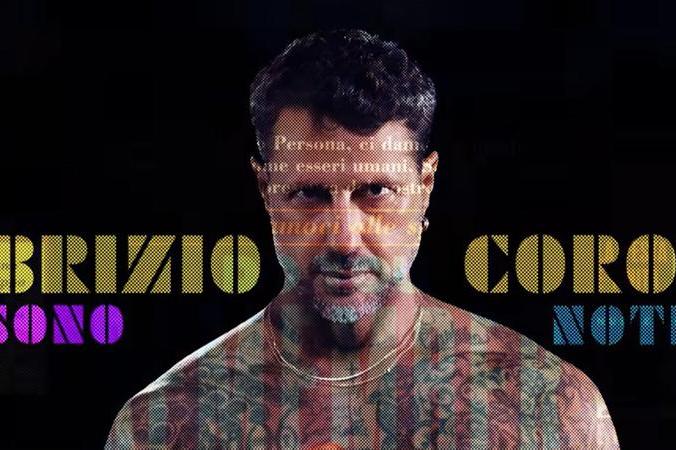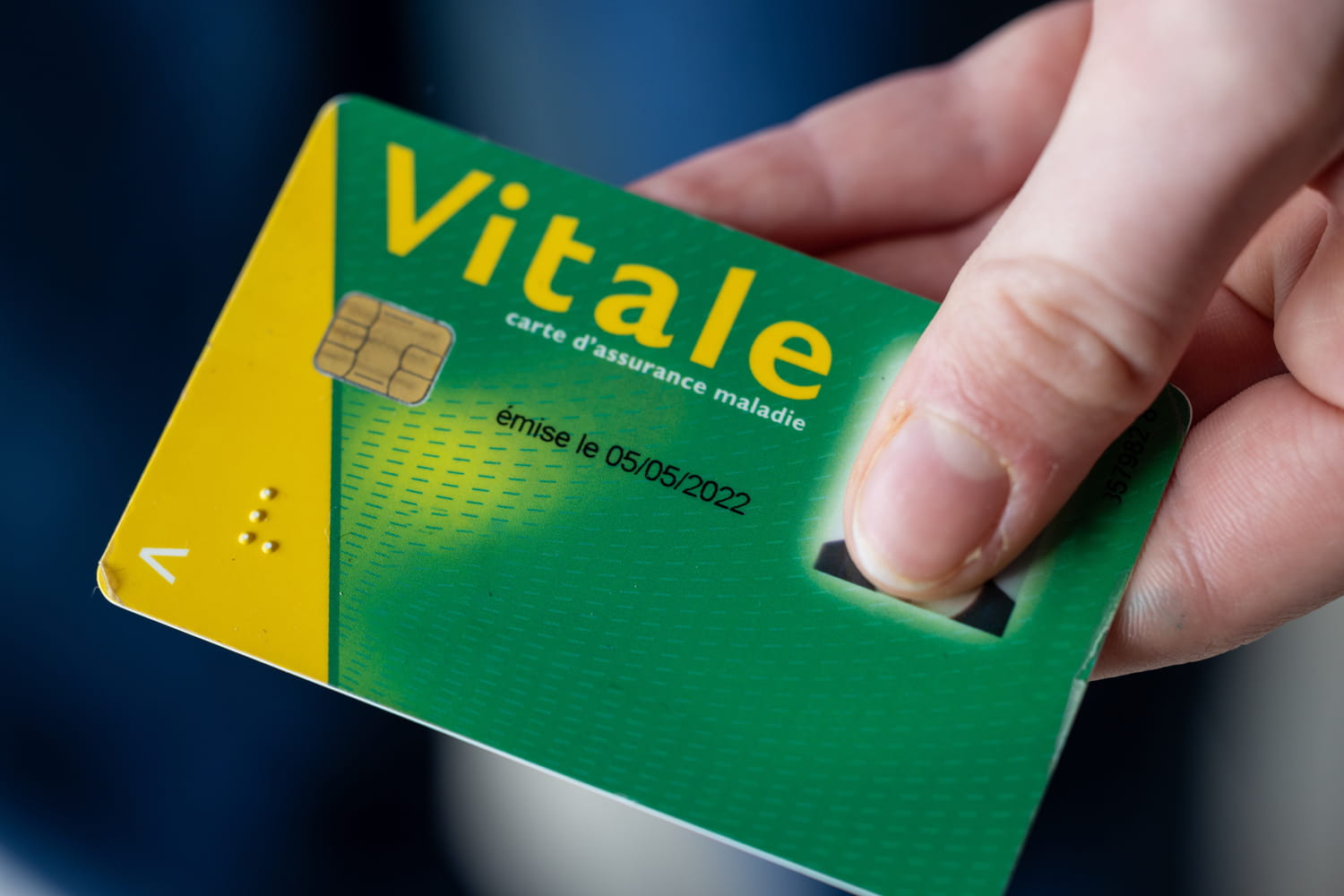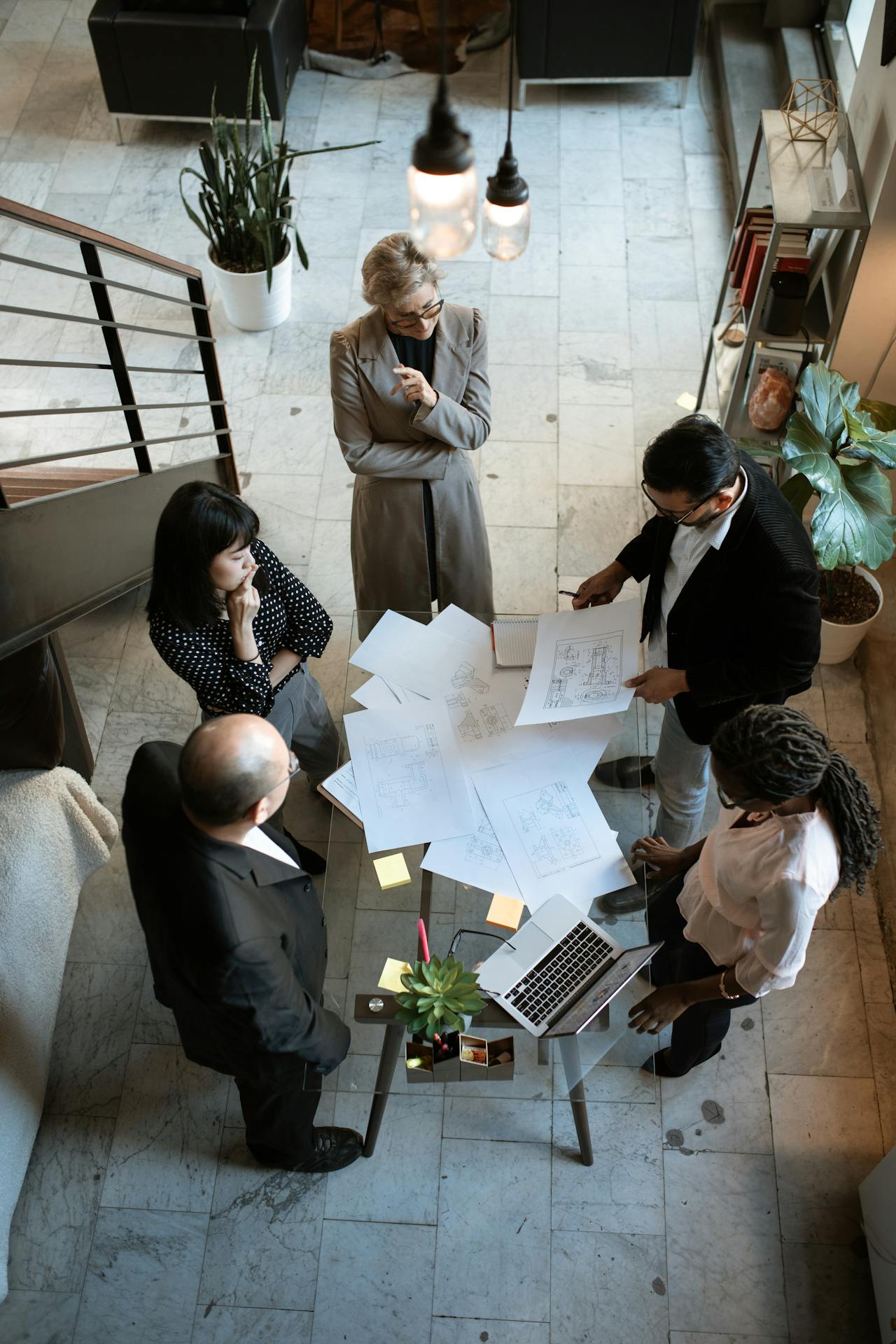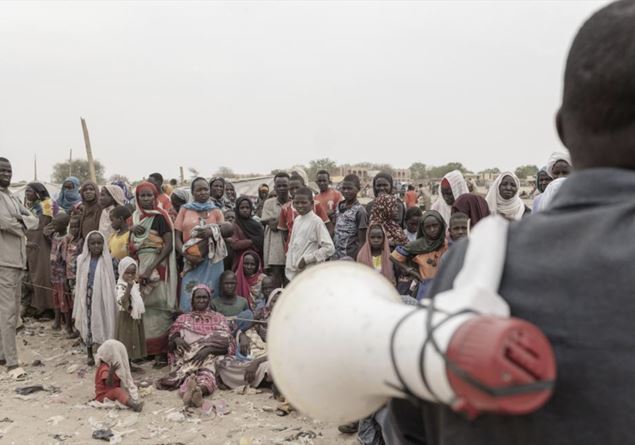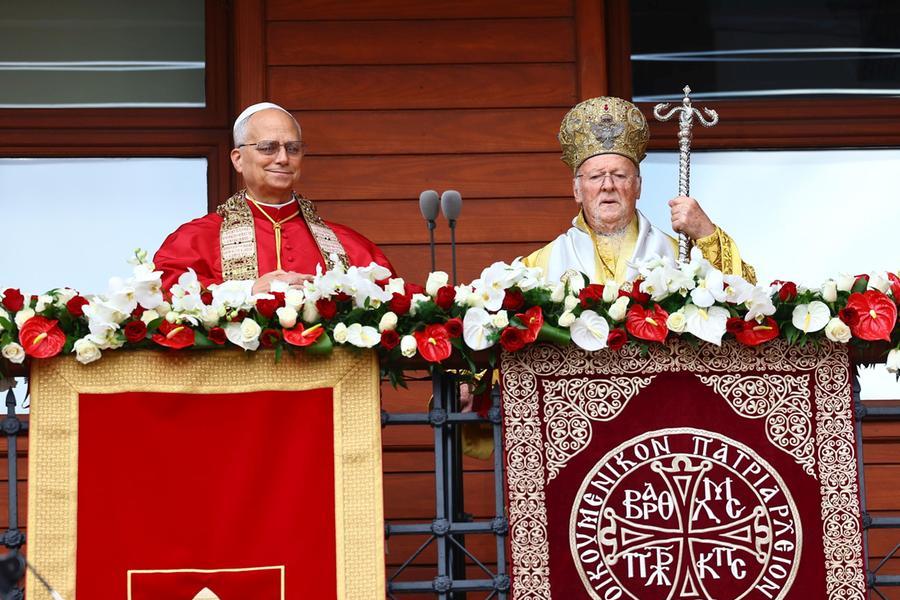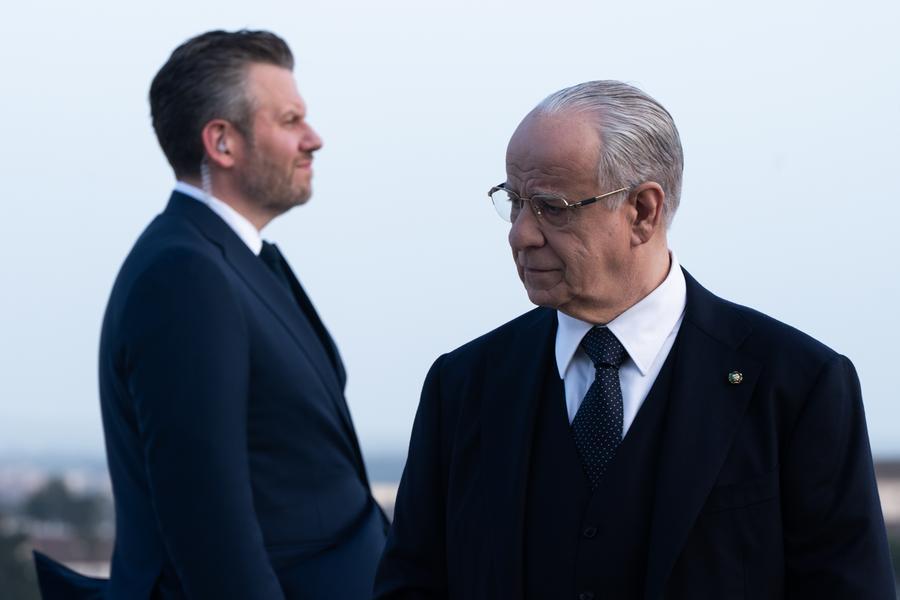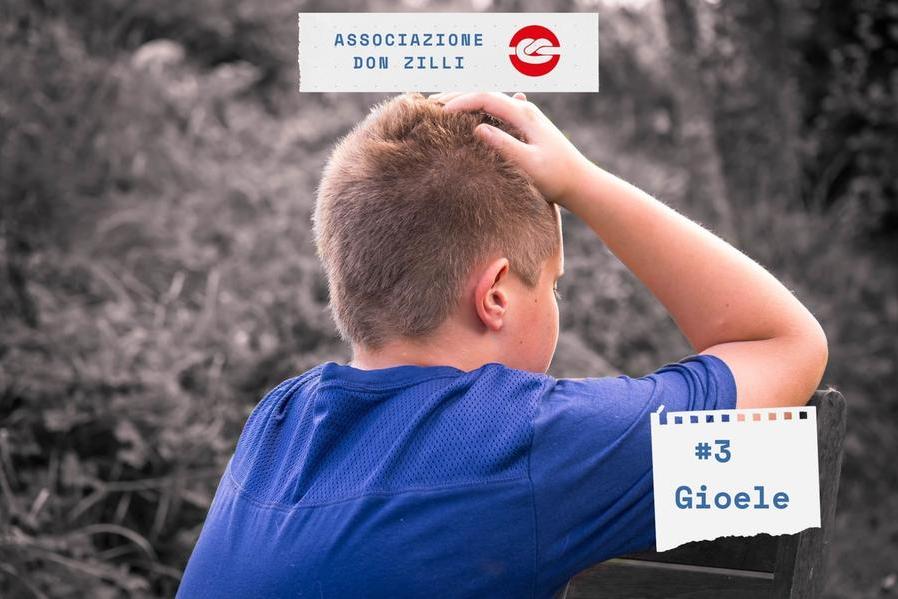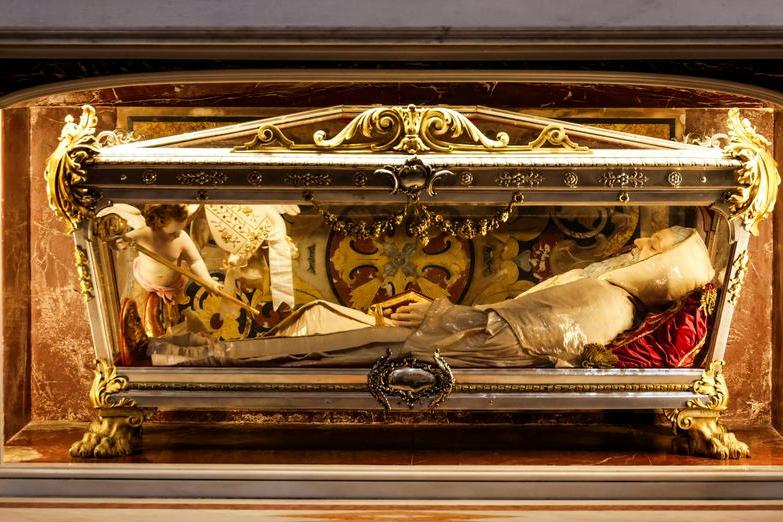The images arriving from Sudan are few, filtered, almost forbidden. And the ones that show reality — like the photo of a mother and her child hanging from the same tree — are too harsh to appear on a screen. “After the fall of El Fasher,” he says Chiara Zaccone, COOPI head of mission in Sudan«the mass killings of the ethnically African population are visible even from satellites. But the most terrible images are spread directly by the RSF militiamen on social networks.”
It’s a heartbreaking story. Darfur, a region almost the size of France, has been experiencing one of the worst humanitarian crises on the planet for two years. The city of El Fasher, the last capital remaining under government control in North Darfur, has been under siege for over 500 days. «It was a very long siege», explains Zaccone, «and from April 2025 the situation worsened. The Zamzam refugee camp, one of the largest in the country, was hit heavily: thousands of civilians killed, around 400 thousand people fleeing in a single day».
Today El Fasher is an enclave of hunger and fear. “Between 150 and 200 thousand civilians were trapped in the city,” he continues. «Access to food is almost impossible. Our colleague on the ground told us about daily bombings, street clashes, summary executions. The last price he told us, before managing to escape, was 150 dollars for a kilo of rice. People survive by eating seeds, leaves, even animal hide. Malnutrition, especially among children and women, has reached dramatic levels.”
“We didn’t expect this cruelty”
When he talks about his colleagues, the COOPI head of mission’s voice cracks. «We didn’t expect this horror, we didn’t expect this cruelty. My colleagues are deeply shocked. Some had friends or relatives in El Fasher and have been unable to contact them for days. One of them, who coordinated our interventions, managed to escape only after three days of walking in the desert, up to Mellit. He risked his life.”
The satellite images of the Yale Humanitarian School confirmed what humanitarian testimonies already feared: mass executions, mass graves, devastated hospitals. «In the Sodio hospital, the last one still functioning in El Fasher, around 400 civilians were killed», says Chiara. “It’s a pain that’s difficult to even name.”
Behind them RSF — the Rapid Support Forces, protagonists of the atrocities — there is the long shadow of the janjaweed, the “devils on horseback” responsible for the 2003 genocide. “Darfur’s history is marked by cycles of violence and impunity,” he explains. «The RSFs are born from that same matrix. And today the civilian population, in particular the non-Arab population, is still paying the consequences of an ethnic and political conflict that has never had a real solution.”
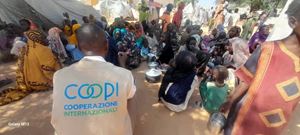
Sudan and the forgotten crisis
Sudan, with its people 25 million people in urgent need of humanitarian aidis the most serious crisis of the contemporary world. Yet it remains on the margins of the news and the international agenda.
«It’s something that strikes me deeply», confides Chiara Zaccone. «In other war scenarios — such as Gaza or Ukraine — the mobilization was immediate: airlifts, global campaigns, emergency aid. Not here. There hasn’t been the same political, diplomatic or media attention. My Sudanese colleagues say: “You are abandoning us”. And it’s hard to blame them.”
Indifference weighs like a boulder. «The life of a Sudanese child is as valuable as that of a European or Middle Eastern child. Yet the perception is that some crises matter more. It is a disparity that hurts, and that the population perceives acutely.”
Twenty years of presence and the choice to stay
COOPI — International Cooperation — has been operating in Sudan since 2004. «We have a historic presence in North Darfur», explains Zaccone. «With the outbreak of the conflict in 2023, we had to reinvent everything: reorganize activities, move, train local staff. In 2024 alone we have implemented more than ten projects, reaching approx 150 thousand people».
Among the main interventions are the supply of drinking water, the construction of latrines and sanitation facilities, child nutrition programmes and psychological support for women victims of violence. «We also remained operational in Khartoum, during the hardest months of the fighting, distributing water and supporting the health centers. The capital is devastated, many families still live in destroyed buildings or makeshift shelters.”
After the intensification of the clashes in El Fasher, COOPI had to temporarily suspend direct activities, but moved the intervention north, towards Mellit. «We are assisting new displaced people arriving every day“, tells. «We distribute tents, drinking water kits, essential goods and psychosocial support. People arrive exhausted, often after days of walking. They are mainly women and children, many in a state of serious malnutrition.”
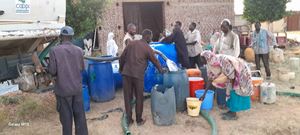
Needs grow, funds decrease
The financial picture doesn’t help. «After the cuts announced by the United States, the entire humanitarian system suffered a huge blow», explains Chiara. «The needs are increasing, but the funds are not enough. The UN has also promised new funding, but it is still too little compared to the enormity of the crisis.” According to data shared in humanitarian coordination forums, only a third of the funds requested for the response plan in Sudan have actually been allocated. «This means having to choose who to help and who not to help. Something that no humanitarian worker would ever want to do”, admits Zaccone.
To try to fill the gap, COOPI participates in advocacy initiatives international, attempting to bring attention to a country that the world has forgotten. «We tell what we see on the ground, with data, testimonies and images. We try to give a voice to those who no longer have one. But the feeling is that we talk about Sudan only when the horror exceeds the threshold of indifference.”
Broken lives and daily resistance
Chiara tells of women who run away with their children, of men who dig wells with their hands, of children who walk barefoot for kilometers. “Every meeting is a lesson in dignity,” he says. «I met a mother who had to flee three times. She was originally from Khartoum, then moved to Al-Jazeera and finally to Gadaref, after her husband was killed. He told me: “Thanks to the contribution you are giving me, today I can buy food for my children. We hadn’t eaten for two weeks.” These are stories that stay with you.”
Another, more recent scene comes from El Fasher. «Our colleague was distributing kits for water purification and to combat cholera. He sent me the photos: hundreds of people lined up, with jerry cans in hand, under the sun. He told me: “Together we can do it”. A few days later he had to flee. Those images, that courage, reminded me why we are here.” And then the smile of a Sudanese operator, in Khartoum, after a day of distributions. «He told me: “I have a smile that goes from here to the moon, because I am helping my people”. It is a phrase that I carry in my heart. It’s why we stay.”
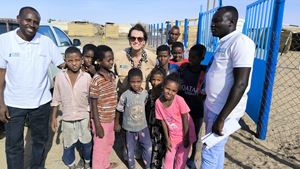
Staying is necessary
Remaining in Sudan today is a choice that entails daily risks. But for Chiara Zaccone and her team it is not a heroic gesture: it is a human duty. «Our presence gives a signal: the population is not alone. Even in the midst of destruction, a little hope can arise. We can’t change everything, but we can change something for someone. And this is enough to continue.” In a country reduced to hunger, where the hospitals are rubble and the water is poison, staying is already a form of resistance.
And in that resistance, fragile but stubborn, lives the deepest meaning of humanitarian aid: Don’t give in to indifference.

